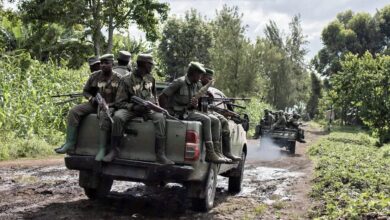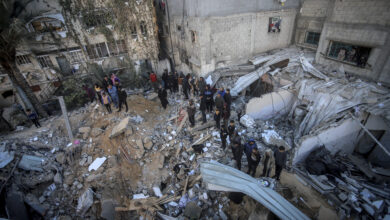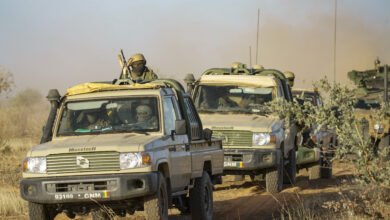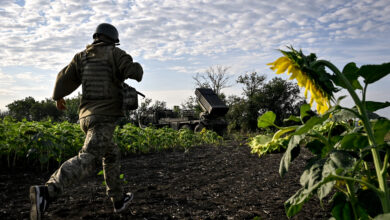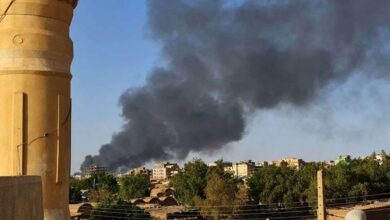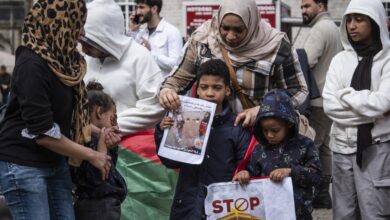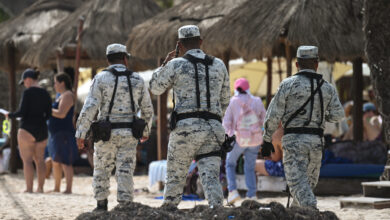Female suicide bombers target army base in northeast Nigeria
Fifteen people were injured when two female suicide bombers targeted the edge of a military barracks in northeast Nigeria, a police spokesperson said.
Soldiers shot dead one woman as she tried to get into the informal market at the base of 333 Artillery Nigerian Army in Maiduguri late on Wednesday, June 20.
Borno state police spokesman Edet Okon said the woman’s explosives detonated when she was shot. A second bomber blew herself up in a nearby motorised rickshaw, he added.
“As a result of the explosions, the two bombers died instantly while 15 persons were injured and were rushed to the hospital for treatment,” he said in a statement.
A bomb disposal team had “sanitized” the area, he added.
It was unclear whether the injured people were civilians or army personnel.
Emergency services in the city said they had no further information on the blast, which came just days after nine soldiers were killed in a Boko Haram attack north of Maiduguri.
Markets on the fringes of military barracks typically sell basic needs to soldiers, including food and alcohol, and are often frequented by troops as well as civilians.
Police said the blasts happened at 8:20 p.m. (1920 GMT) but AFP has been told it occurred about 30 minutes before the night-time curfew in Maiduguri at 10 p.m.
Suicide bombers, many of them women and young girls, have previously targeted security checkpoints, as well as markets, mosques and camps for those displaced by the insurgency.
On Saturday, suicide bombers killed 43 in Damboa, southwest of Maiduguri, which has raised fresh questions about security for internally displaced people in the remote region.
The government, which maintains Boko Haram is on the verge of defeat, wants IDPs to return home.
Maiduguri itself has seen a number of deadly attacks in recent months, including on March 31 when four suicide bombers killed and injured 14 people in the Muna area. Police said the bombers were women.
A month later, two suicide bombers killed and injured dozens of people at a mosque and market in Mubi, about about 175 km (109 miles) north of Maiduguri.
The group targeted the same town in November, killing 50 people in an attack during morning prayers at a mosque in the Dazala area. According to the Adamawa Police Command, a young boy carried out that attack, the first in three years since Boko Haram was driven from Mubi in 2014.
Boko Haram has increasingly used women and young girls as suicide bombers in Nigeria. Women are seen as being less scrutinized than men at checkpoints and public spaces, although that stereotype is changing as the group recruits and forces more women to commit attacks. According to IRIN, more than 200 female suicide bombers carried out attacks in Nigeria and Cameroon between June 2014 and April 2016.
Boko Haram is divided into two factions that have competing goals and operational methods. One, led by Abu Mus’ab al-Barnawi and affiliated with Islamic State, is apparently in talks with the Nigerian government. The other, led by Abubakar Shekau, is notorious for suicide bombings.
With reporting by AFP



